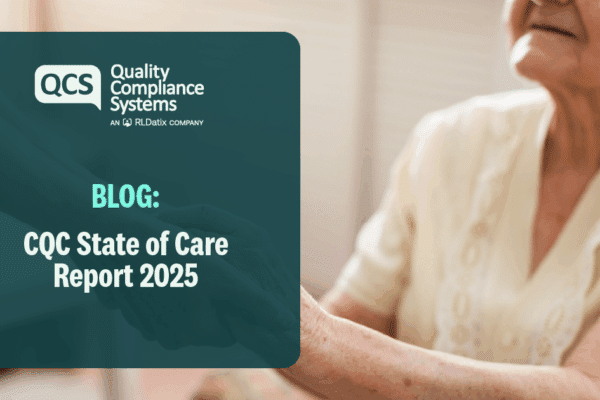On 6th March CQC launched the ‘Worked up? Speak up’ campaign to get more over-60s to speak up about their experience of Care. Why is it important?
Orchestral Manoeuvres
So I went to my daughter’s Orchestra concert the other night… can I be frank with you? There were good bits, don’t get me wrong. Bad bits and funny bits, and then there were the violins… some of you know what I am talking about, don’t you?! The high pitched shrill of something perfectly out of tune at the upper end of the octaves. One particular act made me want to shout ‘please stop I will tell you everything!’.
But I didn’t did I, not even to my closest friends. I said it was all lovely because they were trying, and that was what counts right?
Don’t make a fuss
I do not think that that scenario is so different from one I have seen time and time again in care. A person not being treated as they should, the care not warm or things missed. The individual being cared for saying ‘don’t make a fuss. They are trying’. The anxious relative worried if they say anything they will upset the apple cart.
Older people less likely to complain
A report by the Parliamentary and Health Service Ombudsman found that older people were less likely to complain about their healthcare will not speak up about their care. The research found older people:
- Lack information about how to complain, and don’t know where to go;
- Don’t want to make a fuss and worry about what will happen if they do;
- Feel complaining would make little difference; and
- Can lack support to complain
Growing concern
As the most regular users of health and social care services, and growing, it is sad we cannot learn and improve services from a proportion of older people’s wisdom and worries. But, you cannot capture what has not been said.
Loan cello ranger
But I saw something inspiring that night at the concert… a loan boy with a cello. The piano struck up and the boy’s bow was poised. He placed horse hair on string, played one note and then stopped.
Speaking up
“I am sorry”, he said half standing. “This thing is totally out of tune. Not sure what has happened but I can’t play like this.” The deputy rose and came to the front. We all thought he would be placated to play. But no. “I see what you mean”, said the deputy. “Can someone help him get this thing tuned in the music room? Maybe mum can help?”
Opportunity to encourage
We have an opportunity to encourage people to speak up, whether to CQC or to you. The environment we create and the encouragement we can give can make a world of difference to an individual’s confidence to say how they feel. To help make life better for them and for the service.
Top tips
- Sharing real examples of how things in your service have changed for the better when people have had their say can encourage others to do the same
- Be accessible in how you ask people for their feedback and complaints – use advocates, pictures, large print
- Be proactive in asking people if there are things they would like to talk about or change. This may start as a conversation
- Join the ‘Worked up? Speak up’ campaign and help people give their views. Or start your own similar campaign in relation to your service.
The boy came back. It wasn’t perfectly in tune, but it was much better. He was happier, the concert was better for him speaking up, my ears were happier too!






